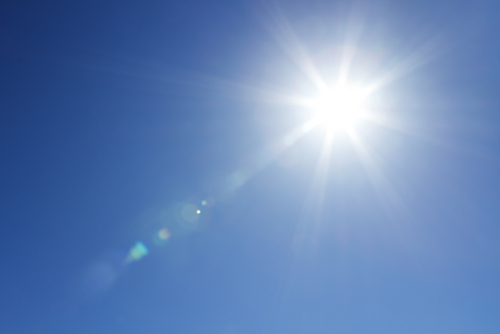The accuracy of weather forecasts has come under fire recently with the Met Office in particular being at the receiving end of a fair amount of scruntiny. In an article which appeared in the Spectator online a few weeks ago Rupert Darwall makes a sustained attack on climate scientists and specifically on the Met Office. His main point seems to be that the Met Office gets weather forecasts wrong. In response, the Met Office have provided accuracy figures online, which are regularly updated to reflect recent performance.
Currently, the Met Office is beating all of its forecast accuracy targets. As an example, 87.7% of their next day maximum temperature forecasts are accurate to within 2C. The target is 80%.
The Met Office is consistently recognised by the World Meteorological Organization as one of the top two most accurate operational forecasters in the world. No forecaster can be accurate 100% of the time and most weather forecasters don’t claim to be, but the Met Office are at the forefront of weather and climate science and are continuing world class research to ensure the UK stays a leader in this field.
In the article, Rupert Darwell gives a few examples of forecast errors to back up his claims – these all refer to the Met Office’s long-range (three month) outlooks. This is a challenging area of forecasting and the Met Office has always been clear that these long-range forecasts are part of our ongoing research and development. We acknowledge that the public favour our short-range forecasts, which they download in their millions on iPhone, Android and now Kindle apps.
With time, continued research will hopefully yield similar improvements in long-range outlooks as several weather forecasters have seen over time in their short-range forecasts. As an example of that progression, the Met Office’s four day forecast is as accurate today as their one day forecast was 30 years ago.
The article also talks about the Met Office ‘bracing’ the UK for a ‘decade of soggy summers’.
This is a misrepresentation of the science, as the statement refers to media reporting following a press conference hosted by the Met Office. The conference came at the end of a science workshop attended by experts from across UK academia to look at the potential causes behind the UK’s recent spell of unusual seasons.
During that press conference, scientists talked to the media about some of the latest research discussed at the meeting. This included research from the University of Reading, which looked at long-term temperature patterns in the Atlantic, which may impact weather patterns over Europe – potentially influencing a higher frequency of wet summers for a given period of time.
Scientists were clear to say this was early research and they were not issuing a forecast, but some parts of the media reported it that way. The Met Office issued a blog in reaction to this, to make clear that there was no expectation every summer would be wet for a decade – but The Spectator article made the same claim again, despite all of this publicly available information to the contrary.
Apparently, “the Met Office has decided that global warming means colder summers in Britain”. This is news to the Met Office, which has been very careful to say that more research needs to be done to understand what impacts changes in our climate (such as reduced Arctic sea ice) could have on UK climate. Again, this seems to be a misinterpretation of our position.
The Met Office has already discussed the issue related to Doug Keenan, which you can also read about on the Met Office blog. You can also see a discussion paper the Met Office published on the issues he raises. On global temperatures, you can look at the Met Office HadCRUT4 pages – which show 2010 and 2005 are respectively the first and second warmest years on record, with all the supporting data available online.
As a final point, Rupert Darwall says: “At the very least, the Met Office has a duty of care to the rest of us: to be balanced and objective, to admit when they’ve got it wrong, not to indulge in speculation and to tell us what they don’t know.”
The Met Office recognises this duty of care and takes it very seriously, which is why their impartial advice is based only on evidence from world class research. Met Office climate scientists have and will continue to report those findings as they are, without censorship, to enable people to make informed decisions. The Met Office is very proud of its science and scientists. Indeed last year the Met Office published 267 peer reviewed scientific papers in academic journals and is widely recognised as one of the best geosciences institutes in the world.
© Met Office






